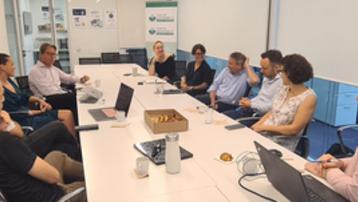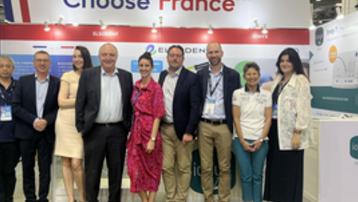Analyses & Etudes • Publications
Logistics Company: Achieving 30% Annual Energy Savings in 2023

In 2023, a pioneering energy management initiative commenced with a premier global logistics entity. Operating across more than 100 countries and generating considerable revenue, the company aimed to enhance its energy efficiency and achieve carbon neutrality for its shipments by 2030. Previously dependent on manual temperature checks, the firm faced hurdles related to energy consumption and operational efficacy. This case study elaborates on the measures BeeBryte implemented to address these challenges, resulting in noteworthy energy savings and operational enhancements.
The company, with its extensive global operations, sought to diminish its energy use while upholding its pledge to carbon neutrality by 2030. Given its multi-level facilities that relied on conventional Fan Coil Units (FCUs) for temperature management, there was a clear need for an inventive solution.
Objectives: The chief aim was to boost energy efficiency throughout the company’s facilities without sacrificing operational temperatures. Specific goals involved the installation of temperature and humidity sensors, automation of the air-conditioning system, and the adoption of real-time monitoring and control practices.
Methodology: Beebryte's strategy commenced with a thorough review of the existing systems, followed by the introduction of the Hive Optimal solution for automated HVAC control. Key components of this solution included:
- The Beebryte Box: A device for remote control and real-time HVAC adjustments.
- HMI Touchscreen and Central Remote Controller (CRC): Tools for the centralized supervision and control of HVAC equipment.
- Sigfox Sensors: Instruments installed to gauge ambient conditions, facilitating precise climate management across different warehouse areas.
Implementation: This project involved the deployment of Beebryte’s technology within strategic locations inside the client’s facilities, enhancing temperature and humidity monitoring and control. The strategy encompassed:
- ON/OFF optimization for the effective operation and distribution of FCUs.
- Temperature Set-point Modulation to ensure stable temperatures.
- Automated air-conditioning control, adapted to Singapore’s distinct climate conditions.
- Early identification of anomalies for efficient maintenance.
- Utilization of real-time data analytics and forecasts for enhanced energy consumption planning.
- A complete upgrade of the HVAC control system to improve energy efficiency.
Results: The implementation of the Beebryte solution led to impressive outcomes, including:
- Up to 10% energy savings through targeted optimizations.
- Significant reductions in electricity costs, with annual savings of 859,673 kWh (29.71%) and S$259,643 (29.72%) in 2022.
- Enhanced control, uniformity, and stability of indoor temperatures, boosting operational efficiency and comfort.
Conclusion: Beebryte’s collaboration with the global logistics company illustrates the impact of specialized technological interventions in realizing significant energy savings and operational advancements. The project did not just fulfill the client's goals but also established a benchmark for sustainable operations within the logistics sector. Moving forward, Beebryte continues to lead in innovation, assisting businesses on their path to energy efficiency and sustainability.
SOURCE: BeeBryte


